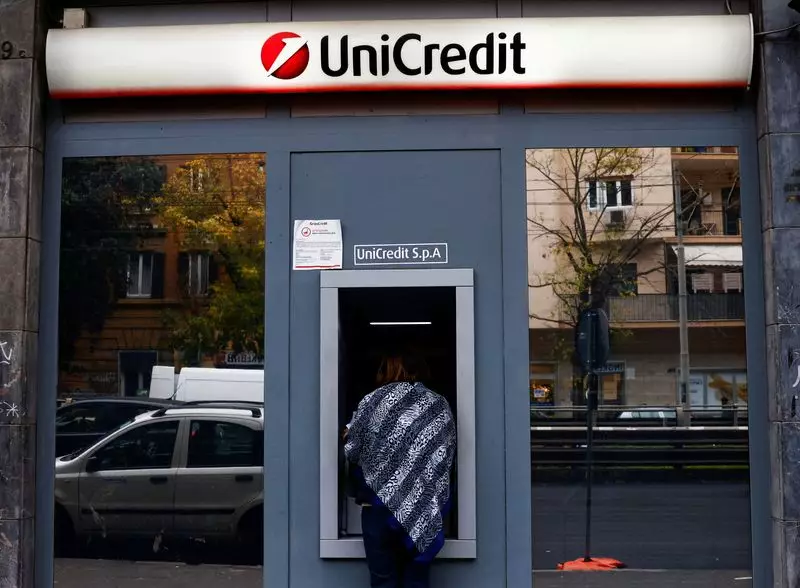Merger and acquisition (M&A) activities have long been a cornerstone of corporate strategy within the banking sector, and the recent developments surrounding UniCredit’s proposed buyout of Banco BPM signify a pivotal moment for both entities. The complexity of this deal goes beyond simple share exchanges; it encapsulates a strategic approach that could reshape Italy’s banking landscape.
On Friday, UniCredit officially submitted its binding buyout offer for Banco BPM, a move anticipated for weeks. The proposed deal is on an all-share basis valued at approximately €10 billion ($10.5 billion), signaling a significant strategy to consolidate market power. UniCredit CEO Andrea Orcel has expressed confidence in the adequacy of the price offered—a crucial factor when considering investor responses. Notably, Banco BPM’s shares closed significantly higher—at €7.846—than the proposed €6.657 per share, indicating that market participants may be speculating on a more lucrative or amended bid in the future.
Orcel articulated the underlying philosophy guiding this move: any M&A transaction must enhance shareholder value, ideally yielding superior returns compared to traditional share buybacks. His track record as an M&A veteran adds credibility to his assertions, and the expectation for any deal to deliver at least a 15% return aligns with best practices in M&A strategies. This emphasis on shareholder value is pivotal as it reassures Banco BPM’s stakeholders of their investment significance in this deal.
The trend of accelerating consolidation within the domestic banking sector played a significant role in pushing Orcel to finally pursue this acquisition after years of cautious consideration. In the context of M&A, timing is vital. The shifts within the financial landscape compelled Orcel’s hand; Banco BPM had long been considered a target, yet the excessive M&A premiums associated with its share price had previously deterred Cisive. However, with increasing pressure for consolidation, this acquisition may well hold the key to sustaining competitive advantage.
In tandem with the proposed share exchange, the strategic alliance with Banco BPM’s largest shareholder, Credit Agricole, must be factored into the equation. The anticipated discussions around commercial partnerships could potentially add value by not only ensuring a smoother transition but also by pooling resources and strengthening market positions against competitors. Credit Agricole’s strategic maneuver to boost its stake in Banco BPM enhances this potential synergy and bolsters UniCredit’s negotiating position.
Orcel has continuously emphasized that any M&A deal must meet or surpass core financial metrics, coupled with a strategic fit that defines its long-term vision. His comments during the announcement highlighted the necessity of resilience and diversification, particularly as banking operations head into what is expected to be a challenging economic environment. By framing the transaction in this light, he positions UniCredit not merely as a competitor but as a more formidable, value-driven entity moving forward.
This buyout offer also signifies a calculated risk. By proposing shares at a premium only slightly above Banco BPM’s recent performance while illustrating the long-term advantages of holding UniCredit shares, Orcel has effectively made a compelling case to Banco BPM shareholders. It draws attention to the bank’s robust performance metrics and distribution yields, further reinforcing the rationale for their participation in the transaction.
Market reactions to the announcement have also stirred discussions around the prospects of further bid enhancements, as stakeholders maintain a watchful eye on both the regulatory approval process and subsequent negotiations among interested parties. With Orcel ensuring that dialogues with all significant stakeholders remain open and continuous, the groundwork is being meticulously laid for a successful transaction.
As UniCredit embarks on this journey to fortify its market standing through the acquisition of Banco BPM, it not only seeks immediate financial gains but also aims to define a new competitive landscape within Italy’s banking sector. The implications of this deal could reverberate through the industry, challenging the status quo and setting new benchmarks in M&A strategies moving forward.
The UniCredit buyout offer for Banco BPM exemplifies a move steeped in strategic foresight against a backdrop of market pressures and investor expectations. Whether this ambition translates into successful execution remains to be seen, but the unfolding narrative is one that signifies much more than a mere acquisition; it is pivotal to the future trajectory of Italian banking.

